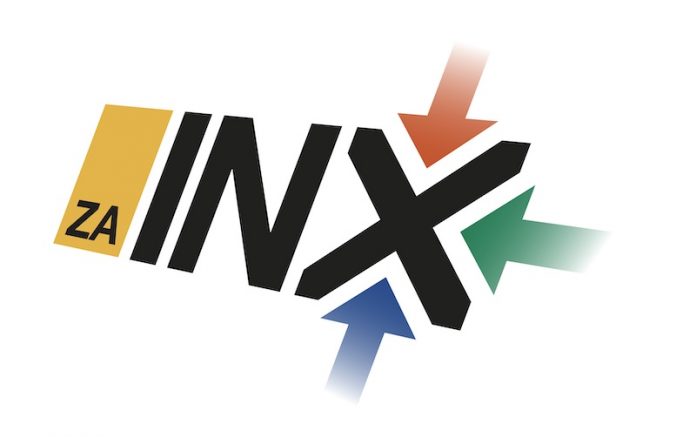
From just 832 kilobytes per second (kBps) in 1996, South Africa’s Internet Exchanges (INXes) have in 2022 handled a late April peak of 325.44 gigabytes per second (GBps) with the average local Internet traffic load being 202.47 GBps.
“What’s more astonishing than the economy-supporting exponential growth of the INXes is the fact that the Johannesburg Internet Exchange (JINX), the Cape Town Internet Exchange (CINX) and the Durban Internet Exchange (DINX) have never experienced a single minute of downtime in 26 years,” says Prenesh Padayachee, Chair of ISPA’s INX Committee.
A massive content drive by INX-ZA has helped boost peering at JINX, CINX and DINX and resultant traffic.
A practical example illustrating the tangible benefits of this drive to make content locally available concerns a CINX and DINX peer.
ZANOG recently changed the Netflix OpenConnect model from the “Embedded Open Connect Appliances (OCAs)” model to a “Routerless IXP” model – a new model Netflix is deploying worldwide. The result is all peers on CINX and DINX can now be served Netflix content across their local Exchange Point.
Now, If a consumer is making use of an ISP based in either Cape Town or Durban, instead of the content being backhauled all the way from Johannesburg it is now being served locally. The ISP saves on costs and this could be passed on to the consumer.
As the African continent’s Internet penetration rates catch up fast to the rest of the world, South Africa’s multi-tenant data centre co-location supply is expected to continue its impressive growth trajectory, further underpinning the growth in Internet traffic exchanged locally.
INX-ZA’s overarching objective is to keep Internet traffic local to lower costs and improve latencies. The community-run INX-ZA manages SA’s data centre-agnostic and multi-site Internet exchange points for the benefit of Internet consumers as an independent operating division of ISPA. The latter’s members regularly contribute towards the country’s INXes with donations of dark fibre being a recent example.
Internet exchange points enable Internet businesses to interconnect their networks so that domestic Internet users benefit from faster connections and more efficient access to online services. Network operators benefit from lower costs, resulting in more stable and affordable bandwidth which is crucial for the development of the Internet.
Led by INX-ZA, sustained investment in the country’s Internet exchanges have meant that South Africa today is much less reliant on international transit In 2020, the country’s dynamic local peering ecosystem helped ensure that breaks in two different undersea cable systems had a limited impact on local Internet users.
It remains vital that INX-ZA is able to attract the right volunteer talent. In this regard, INX-ZA recently accepted nominations to the organisation’s management committee.




